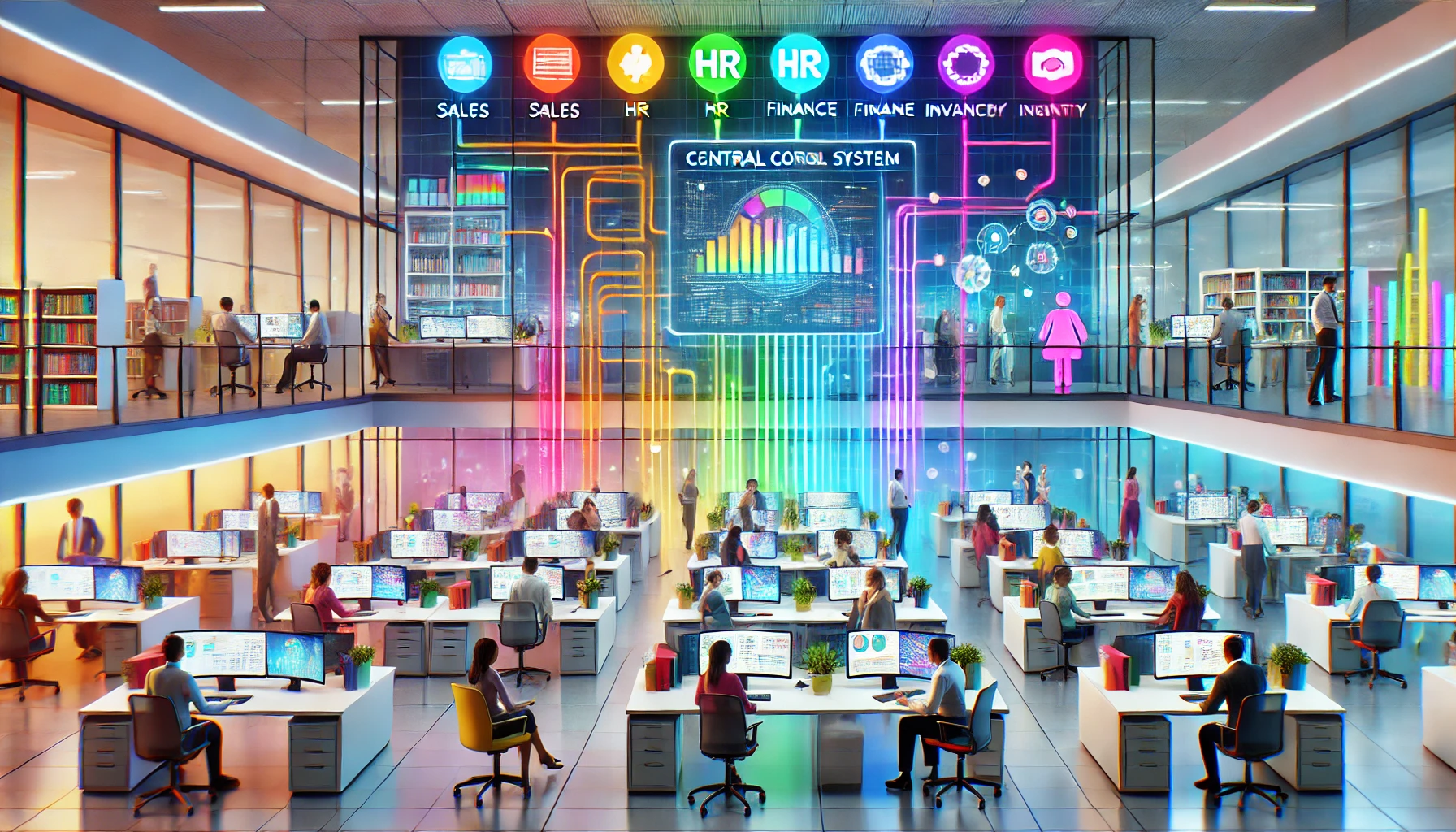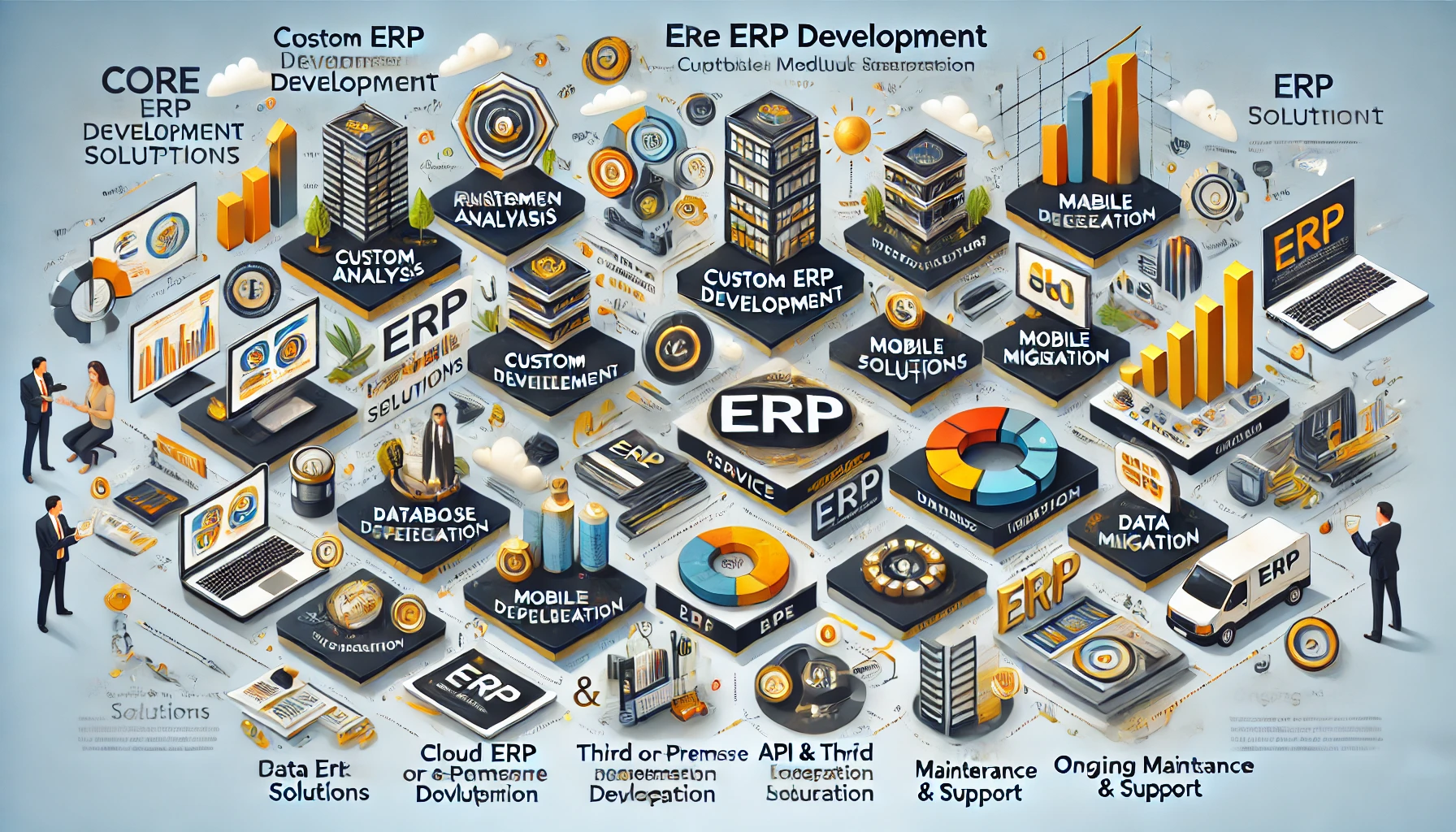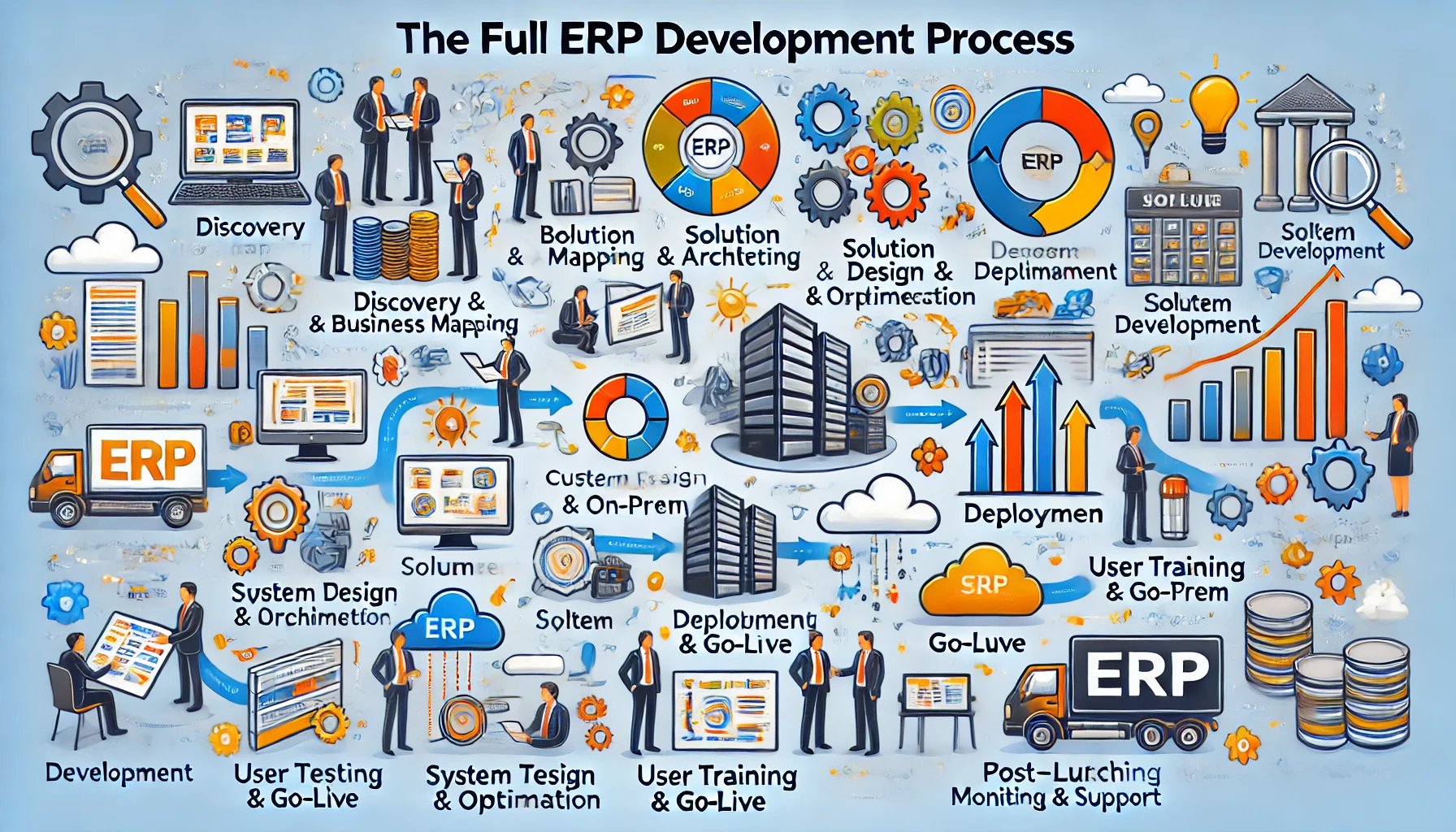Tired of Juggling Disconnected Software? Let’s Fix That
Imagine your sales team is closing deals fast, but your finance department is struggling to invoice on time.
Your inventory shows items in stock, but shipping delays are piling up because no one’s aligned. Sound familiar?
That’s the chaos of operating without an integrated ERP system—and it's costing businesses in lost productivity,
customer dissatisfaction, and missed revenue.
At Ksoft Technologies, we help you eliminate this chaos with custom ERP development services built around your business.
We’re not offering a one-size-fits-all template—we deliver tailored ERP solutions that align with your operations, scale with your growth,
and give your team full visibility and control from one unified platform.
Whether you’re in retail, manufacturing, logistics, or healthcare, our ERP systems are designed to bring your departments together—
from CRM and HR to finance, production, and support.
See how real businesses are benefiting from our ERP solutions:
👉
Watch ERP Videos on Ksoft’s YouTube Channel
Why Businesses Need Custom ERP—Now More Than Ever
Legacy tools and department-specific software may have worked in the past, but they’re no match for today’s demand
for speed, accuracy, and efficiency. With remote work, multi-location teams, and data coming in from all directions,
you need a central system that keeps everyone on the same page.
That’s exactly what ERP (Enterprise Resource Planning) offers—and it’s no longer just for large enterprises.
With Ksoft’s cost-effective ERP development for SMEs , you get:
- Unified operations
- Real-time visibility
- Smarter decisions
- Reduced overhead
ERP isn't just an IT solution—it's a business transformation strategy.
And at Ksoft, we’ve helped dozens of U.S. companies modernize their systems with ERP platforms
that are powerful, flexible, and easy to use.

Ksoft Technologies: Your ERP Development Partner
As a leading software development company USA, Ksoft Technologies brings deep technical expertise and real-world
business insights to every ERP project. We don’t just build software—we build operational ecosystems that align people,
processes, and data under one digital roof.
When it comes to building ERP software, not all providers are created equal. At Ksoft Technologies, we take a consultative,
business-first approach—developing ERP systems that are built to reflect your unique processes, not force you into a mold.
Here’s why U.S. business owners across industries trust us as their ERP partner:
-
Tailored to Your Business
We don’t use cookie-cutter ERP templates. We build your ERP solution from the ground up, customized for your workflows,
reporting needs, department structures, and user roles. Whether you're a logistics company with multi-warehouse operations
or a healthcare provider with strict compliance requirements, we craft software that aligns with your business DNA.
-
ERP Built for Scale
As your business grows, so should your ERP. Our systems are built with scalability in mind—whether you're expanding to new
locations, growing your product catalog, or adding new departments. You won't outgrow our software—we build it to grow with you.
-
Mobile-First, Cloud-Ready
All our ERP systems are designed with remote accessibility and flexibility in mind. Whether your team works in-office,
in the field, or across time zones, our cloud-based ERP allows seamless access via desktop, tablet, or mobile—powered by our Flutter app development services USA.
-
Cost-Efficient Development
We believe in delivering enterprise-grade solutions without bloated enterprise costs. Our development process is agile and lean—
meaning faster turnaround, reduced development hours, and maximum ROI.
-
End-to-End Services, Always
From business analysis and custom design to post-launch support, we walk with you at every stage.
Our software development company USA model means you get local quality with global delivery speed.
Our ERP Services at a Glance
Here’s a breakdown of the core ERP development services Ksoft offers. Each service is modular, meaning you can choose what you need, when you need it:
-
ERP Requirement Analysis & Business Process Mapping
We start by understanding your current workflows, challenges, and goals. Our business analysts document your needs and map them into ERP modules.
- Custom ERP Module Development
We build ERP modules tailored to departments like Sales, HR, Accounts, Inventory, CRM, Procurement, Projects, and Support.
- Database Architecture & Centralization
Your entire operation is supported by a secure, scalable, and centralized database that allows for seamless data exchange between departments.
- Cloud or On-Premise ERP Deployment
Whether you prefer to host your ERP on the cloud or on your own infrastructure, we provide deployment that fits your business model and security policies.
- Mobile ERP Solutions
Access your ERP on-the-go with our custom mobile apps developed using Flutter. Ideal for field teams, leadership, and third-party collaborators.
- API & Third-Party Integration
Our ERP systems integrate easily with tools like Stripe, QuickBooks, SAP, Salesforce, WooCommerce, and custom CRMs.
- Data Migration & Legacy System Integration
Already using older software? We help you migrate your data and connect legacy systems to the new ERP environment without disrupting operations.
-
ERP User Training & Documentation
We make sure your team is ready. With detailed user manuals, training sessions, and hands-on onboarding, adoption is smooth and fast.
-
Ongoing Maintenance & Support
We stay with you even after the launch—handling bug fixes, system upgrades, and performance enhancements.
Each of these services is delivered by our best software developers USA, project managers, UI/UX designers, and cloud engineers working together under one roof.

Industry-Specific ERP Solutions
ERP isn’t a one-size-fits-all solution. At Ksoft, we specialize in delivering ERP systems tailored for your industry’s regulations, workflow patterns, and KPIs.
-
Manufacturing ERP
Track raw materials, manage work orders, automate production schedules, and monitor equipment usage. We integrate inventory control with supply chain visibility to streamline manufacturing at every stage.
- Retail & Ecommerce ERP
From product listings and pricing rules to multi-location stock updates and online sales integration, our ERP solutions help ecommerce stores and retail chains gain full control of their operations.
-
Logistics & Supply Chain ERP
Optimize routes, manage fleet maintenance, process real-time delivery tracking, and connect warehouses across regions. Our ERP is designed for time-sensitive, multi-location logistics operations.
-
Healthcare ERP
Patient scheduling, EMR management, billing cycles, compliance tracking—all in one system. We develop healthcare ERP platforms that are HIPAA-compliant and optimized for service quality and patient data security.
-
Professional Services ERP
For law firms, IT consultants, agencies, and field service companies—track billable hours, schedule projects, manage timesheets, and automate recurring invoices.
-
Construction ERP
Track project stages, manage budgets, schedule labor, and handle site logistics. Integrate your office with the field using our mobile-ready construction ERP modules.
How We Build Your ERP System
Our ERP development process is business-centric, agile, and designed to minimize risk while maximizing value:
-
Discovery & Business Mapping
We begin with in-depth consultations and analysis of your operations. We map out current workflows and define the exact modules, roles, and data your ERP needs to support
- Solution Design & Architecture
Our engineers create a technical blueprint—detailing UI layouts, database structures, access permissions, and module interconnections. We ensure scalability and compliance are baked into the architecture.
-
Custom Development
This is where the magic happens. Using cutting-edge tools and frameworks—including Web Development AI for smart automation—we code your ERP solution module by module, ensuring they talk to each other in real-time.
-
System Testing & Optimization
We conduct unit testing, module testing, integration testing, and performance checks. Any bugs or glitches are resolved before the system goes live.
-
Deployment (Cloud or On-Prem)
Depending on your infrastructure, we host your ERP on a secure cloud platform or deploy it on-site. We also configure backups, security protocols, and access settings.
-
User Training & Go-Live
Before launch, we train your team with live demos, role-specific guides, and walkthroughs. We ensure every user feels confident using the system.
-
Post-Launch Monitoring & Support
We don’t disappear after delivery. Our support team is available for updates, performance tuning, and module enhancements based on real-time feedback.

Ready to Build a Smarter Business
Running a business with disconnected tools and isolated systems leads to confusion, delays, and unnecessary costs.
That’s why modern companies are moving toward centralized solutions that streamline every department—sales, HR, finance, CRM, inventory—
under one powerful platform. At Ksoft Technologies, our custom ERP development services are built specifically for businesses like yours—
designed to align with your operations, scale as you grow, and solve real challenges that impact productivity and decision-making.
To see our solutions in action, visit the
Ksoft Technologies YouTube channel. Our videos dive into real-world business problems and demonstrate exactly how our ERP systems resolve them—
from operational inefficiencies to communication breakdowns. These insights bring clarity to the importance of tailored ERP platforms
and show how they transform businesses from the ground up. Whether you're a startup founder or a multi-location enterprise,
you'll find the answers you're looking for. Watch, learn, and then let’s build your smarter business—together.



